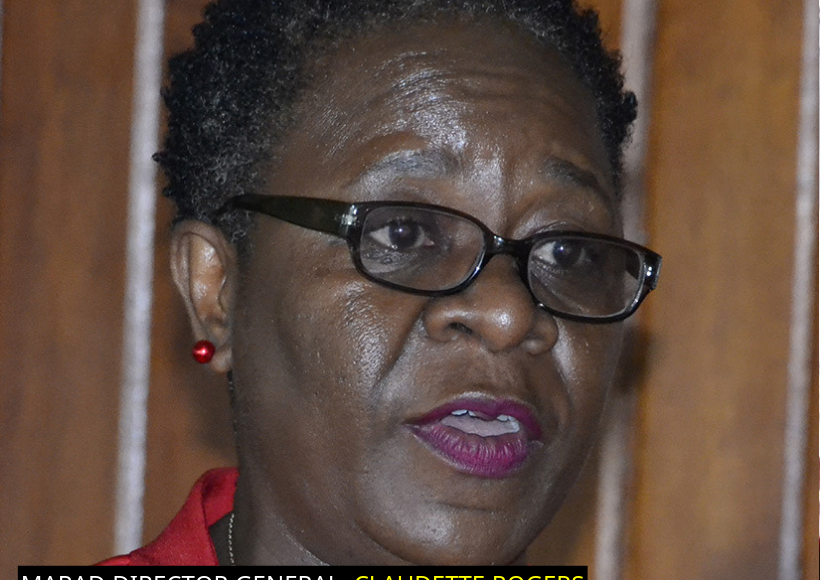The Maritime Administration Department (MARAD) has completed its legislative review in anticipation of MARAD’s increased mandate for the looming oil sector.
Making this revelation today was MARAD Director General, Claudette Rogers. She was at the time delivering remarks at a conference hosted at the Marriott Hotel. Organized by Hughes, Fields, and Stoby, the event focused on the robust legislative and fiscal regime that would be needed by MARAD.
The Director General said that Professor Duke Pollard, who is also a retired Judge of the Caribbean Court of Justice (CCJ), was retained as a consultant to undertake the task of updating Guyana’s Maritime Legislation.
She said, “I am aware that this assignment has been completed with the requisite recommendations which would pave the way for the realisation of a more robust system of maritime administration in Guyana and the consequential reduction in the elimination of potential conflicts among agencies with respect to where the responsibilities reside relative to the administration of certain key Maritime functions.”
The Director General continued, “Very often, the general perception of the role of MARAD is to issue licenses with respect to seamen competencies, pilotage and carrying out inspections. However, the role of MARAD in safety and environment protection should not be convoluted or ignored given the rapid increase in marine traffic that is occasioned by the commencement of petroleum drilling in Guyana’s Exclusive Economic Zone (EEZ).”
Rogers added, “It should be noted that although Guyana has ratified the main International Maritime Conventions, the requisite regulations need to be enacted or put in place because the country follows the common law system.”
The Director General stressed that the legal and administrative arrangements must be given currency if all of the desired goals and objectives of the country’s Maritime policy are to be achieved. Additionally, the Director General said that the need for sectoral co-operation relative to the implementation of these policies cannot be over-emphasized.
Turning her attention to a second recent development within the sphere of maritime administration, Rogers said that last year, the IMO Member State Audit was completed. Contrary to the public pronouncement that Guyana had a bad report, she posited that the Maritime Administration’s performance was commendable.
She said that in preparation for this audit, a number of critical elements had to be addressed. Rogers said that these involved flag, port and coastal state administration.
The MARAD official said “The reality is that MARAD is required to be in line with the demands of the International Maritime Organization (IMO). Therefore, the regulatory issue, as well as the institutional, technical, environmental and socio-economic considerations, must be aligned with established best practices.”
As a direct result of the IMO Audit, Rogers said that several measures were necessary. She said that one of these included the enacting of regulations to give full and complete effect to the conventions which Guyana has ratified.
“For example, one of the observed limitations of MARAD was the fact that Guyana had not ratified the Standards of Training, Certification, and Watchkeeping (STCW) 95 Conventions and our local Maritime surveyors were issuing certificates based on this regime which was a significant breach of International Maritime laws,” disclosed the official.
The Director General said that MARAD has sought to correct this while noting that positive change does not occur without quantum resistance from those who embrace the old regime.













